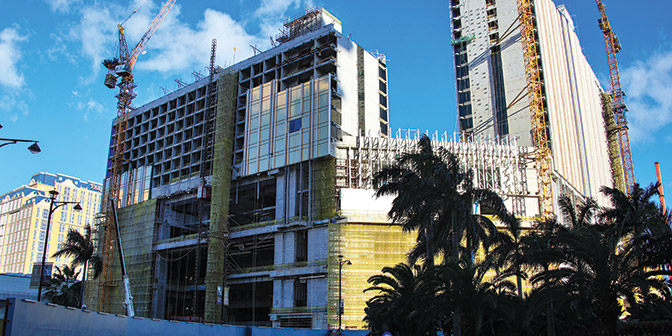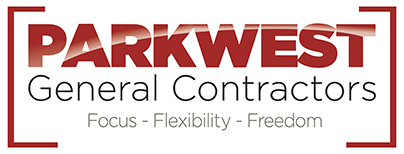Another firm, InnSpace, was classified as an essential business throughout COVID-19 shutdowns, according to Jeremy Markham, director of business development, which allowed the company to reassess its overall process and procedure development.
“We've made significant strides in the last year standardizing and implementing updated systems in our design, procurement and project management procedures that have increased efficiency and capacity, bringing more added value to our customers,†he said. “2020 also allowed us to focus on the individual needs of our employees and work to implement a more recognized opportunity for personal development and training.â€
Aaron Dearborn, president, Amerail Systems Inc., noted that his company was flat year-over-year, “which, to us, was a huge win considering the environment we are in.â€
He added, “We had several projects pause or push into late 2021 and 2022. We found that economy-brand properties continued forward with projects, as well as projects in coastal and resort areas of the country. Having a nationwide presence, we were able to shift our resources and staff to accommodate this change in our industry and adapt pretty easily to the new normal in the summer of 2020.â€
Three months in, the construction company executives see some challenges ahead. Sachin Patel, partner/chief administrative officer, The Witness Group, believes the biggest one will be “managing our workforce through a period of uncertainty,†adding, “Given our new-construction deals are on pause, we will have to lean heavily on existing projects and hope for a couple of renovations to get the green light.â€
Markham pointed to rising costs of materials due to a significant pandemic-created shortage as the biggest problem, noting, “We are also experiencing consistent delays in trucking and material transportation, which is another challenge that will need to be addressed. The industry continues to adjust to these challenges in various ways, including putting additional lead times into the procurement processes.â€
Bartolai sees financial issues for owners causing a delay in new projects. “We expect the hospitality sector to lag the general economy; many hospitality owners will only start experiencing financial challenges this year as forbearance from lenders runs out,†he said. “We expect to see increased competition for the available opportunities and compressed margins due to rising costs for labor and materials.â€
The pandemic has also impacted the construction process itself. “With new safety protocols in place, we have limits on the number of workers that can be in any space at a given time,†said Bartolai. “This affects some of the most basic aspects of a project, including just getting manpower and materials into the building using hoists or elevators. In general, productivity on the projects is reduced due to these necessary safety protocols required to protect all.â€
These challenges, Markham said, have forced construction companies back to the pre-planning process, where they have to set realistic expectations for their customers and subcontractors.
“By communicating with the hotel owners and subcontractors early on and discussing all the staffing requirements, logistics and expected delays, we can adequately adjust to current conditions and maintain delivery of the project safely, on schedule and on budget,†he said. “Of course, due to the added timelines and additional requirements, clients can expect to see pricing increases to the material and labor costs.â€
Nikki Fox, VP of business development, Parkwest General Contractors of Anaheim, CA, has focused on some of the positives that have come out of the pandemic for her company.
“For owners who can get away with completing a renovation now,†she noted, “there is a high probability of the following advantages: Low occupancy can lead to faster construction schedules, along with lower guest disturbance and, in some cases, brands have relaxed their construction and design standards.â€
As the vaccine becomes more readily available, Dearborn said, “Amerail will be ready to return to more in-person meetings and site visits which will allow us to build a better relationship with our customers and vendors. We have been able to switch to mostly virtual meetings, but nothing beats meeting an ownership group onsite of a project.â€
Fox expects new construction to hold off until next year, with renovations being the bulk of new business. “With world uncertainty coming to an end due to the vaccine, along with finance standards loosening up, many owners will be hoping to move forward with their PIPs [property improvement plans]in the third or fourth quarter,†she said. “Between design approval and procurement timelines, many owners will not be beginning construction until 2022. They should be bringing their renovation teams together ASAP for a 2021 renovation.â€
Patel forecasted that some new construction will come back by the end of this year. “We anticipate very limited new-constructions kicking off, especially if financing isn't already in place,†he said. “Our projections are that projects already in motion will continue, often with timelines dragged out, and select new projects in areas that have recovered quickly will commence in Q3 or Q4.â€
Markham agreed with the second half of the year assessment, adding, “It's such a resilient industry, and hospitality personnel's very mindset is to move forward, improve and view the glass as half full instead of half empty. Branded hotels have been considerably lenient and understanding through 2020 in their required PIPs and have granted many extensions to required renovations. As business improves and restrictions lift, we expect brands to resume PIP requirements and deadlines, resulting in increased business for hospitality renovations.â€
Dearborn expects “a slow and methodical start [to 2021]with a strong finish, building to a robust 2022 and beyond. Toward the end of 2021, we should see some pent-up demand for our services across the country. We expect to see a fair amount of transaction-based PIP activity in the coming years due to the recent economic downturn in our industry.â€









